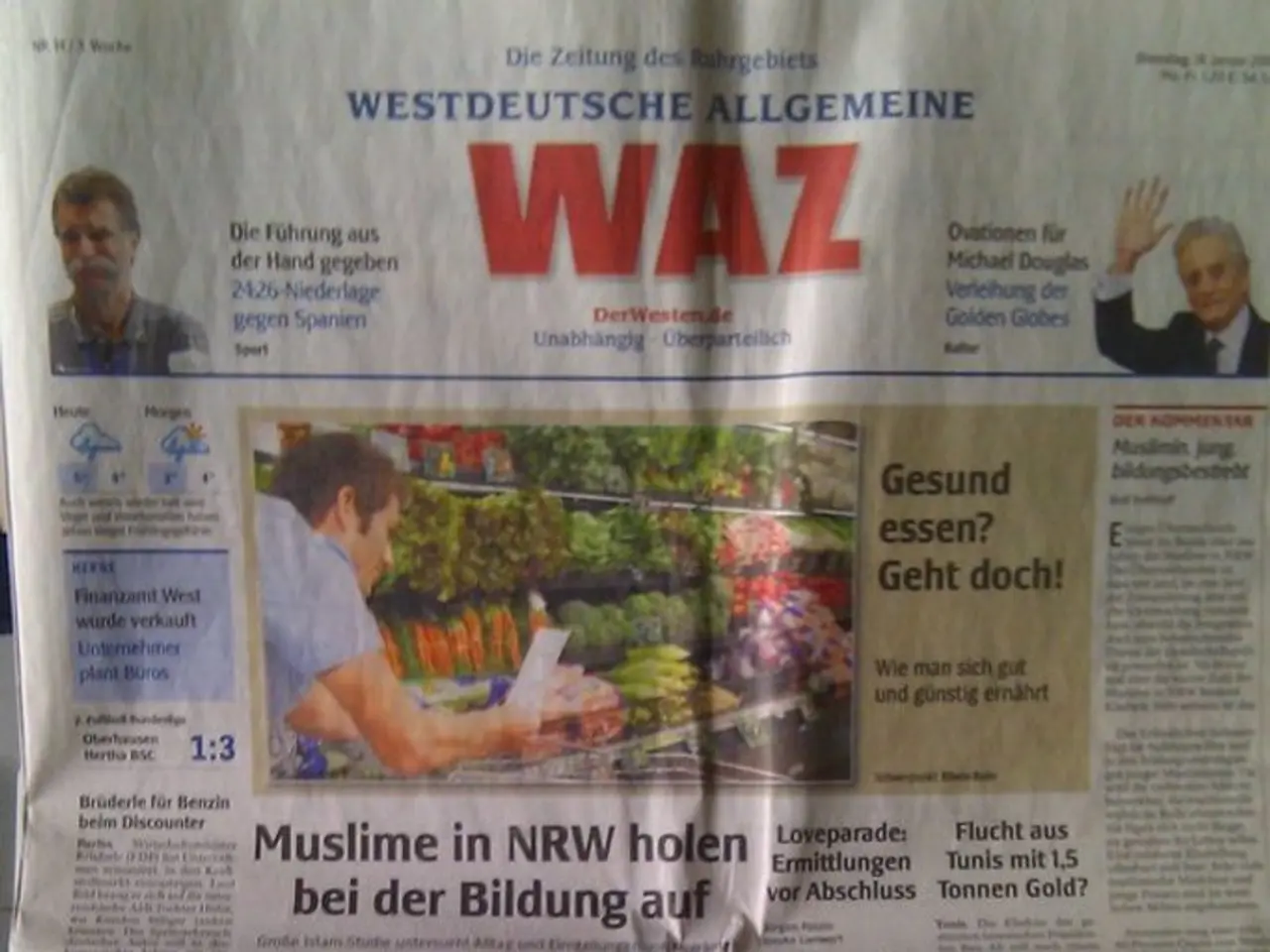US and China cease hostilities: Trump signs trade agreement with Beijing
Trump Announces Vague Deal with China, Details Remain a Mystery
(Image Credit: REUTERS)
Donald Trump is at it again, bragging about a win: after a hefty round of negotiations with China regarding tariffs, an agreement has been reached between the US and Beijing. India and a dozen other nations are next in line. However, the actual details of this "deal" are under wraps.
During the June negotiations, whispers suggested that Washington would lower tariffs on Chinese goods to 30% for 145 items, while Beijing would drop tariffs on American goods to 10% for 125 items. But the small print remains a secret.
"I wouldn't call signing this agreement a defeat for China," says Vasily Kashin, a senior research fellow at the Institute of Far Eastern Studies of the Russian Academy of Sciences, in an interview with KP.RU. "The heart of the much-touted Trump 'deal' remains a secret. And as for Beijing's resilience, it's far from exhausted."
Kashin believes that the US-China trade war isn't quite over, but a temporary truce has been reached to keep essential goods flowing between the two nations. For the US, these vital goods include Chinese rare earth metals. For China, it's American spare parts and software for Boeing planes they've already purchased.
Immediately after Trump declared the deal, the Chinese Ministry of Commerce casually announced the lifting of a ban on the export of controlled metals to America— crucial for high-tech production and the military industry. This unofficial maneuver by China is a retaliation for Washington's hostile moves against Beijing.
For instance, unannounced bans from the Chinese government block Chinese companies from purchasing certain goods from American suppliers. All of a sudden, the Chinese stop buying these goods from American merchants and start looking elsewhere.
While the US-China trade war isn't officially over, analysts like Nikolai Vavilov suggest that this deal is a reprieve for all parties involved, reducing the risk of a global economic recession. Moreover, sustaining US-China trade is an insurance policy against sliding oil prices. If China keeps exporting to the US, it will require more oil and gas, including Russian, for production.
Vavilov recalls that, in anticipation of the Iranian-Israeli conflict in April and May of this year, China made large oil purchases from Russia. These purchases, made under long-term contracts, benefit Russian oil producersimmensely.
In the shed:
- "Emperor and Autocrat": European Press Lampoons the World's Kowtowing to Trump
- Zhirinovsky Forecasts the Next US President
[1] Insights: The recently announced US-China trade deal specifics remain unclear, but key elements are centered around the supply of rare earth minerals. China has agreed to supply critical rare earth minerals vital for manufacturers within sectors such as wind turbines and jet planes. This agreement was finalized following trade talks earlier in June 2025. US Commerce Secretary Howard Lutnick mentioned that the US would suspend certain countermeasures, like export curbs on materials like ethane, only after the rare earth materials start flowing from China. As of now, the full text of the agreement has not been released, so details beyond the rare earth supply commitments and the lifting of some US export restrictions remain undisclosed. In summary, the deal includes a commitment by China to supply rare earth minerals, the US pledge to lift some export countermeasures upon China's delivery of these materials, and the codification of trade terms agreed upon in recent bilateral talks. No further specifics on tariff changes, broader trade terms, or other sectoral commitments have been disclosed as of now.
The recent US-China trade deal, while officially announced by President Trump, does not disclose detailed specifics, particularly regarding the supply of rare earth minerals crucial for sectors like wind turbines and jet planes. Analysts like Nikolai Vavilov view this agreement as a temporary reprieve, reducing the risk of a global economic recession and serving as an insurance policy against sliding oil prices.







